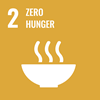What is The IPM Road Map?


At Valent U.S.A. (Valent) eight unique and easily distinguishable icons have been established to highlight the key sustainable practices and attributes our products can provide to your sustainable agronomic production system. For a product to qualify for an icon it must meet strict, science-based criteria established under one of the three pillars of sustainability - People, Planet and Productivity. Using relevant U.N. Sustainable Development Goals (SDGs) as a guide, Valent products that meet specific criteria in each pillar are designated as sustainable solutions. One of the icons that falls under the sustainable pillar of Productivity is “IPM Friendly” and will be discussed in this article.
According to the United States Department of Agriculture (USDA), Integrated Pest Management (IPM), as defined in 7 U.S.C. § 136r, is “a sustainable approach to managing pests by combining biological, cultural, physical, and chemical tools in a way that minimizes economic, health, and environmental risks.”(1) Also, as defined by the USDA, pests are any organisms (including plants and animals) that pose health, environmental, economic, or aesthetic risks and pests may exist in agricultural crops, forests, parks, wildlife refuges, and military bases, as well as residential and public areas, such as schools and public housing.(1)

IPM provides economic, health, and environmental benefits. Those who implement IPM practices use knowledge of pest and host biology in combination with monitoring to respond to pest problems with management tactics designed to:
- Prevent unacceptable levels of pest damage
- Minimize the risk to people, property, infrastructure, natural resources, and the environment
- Reduce the evolution of pest resistance to pesticides and other pest management practices
Valent U.S.A. utilizes the IPM Friendly icon to evaluate products by specifically considering the impact on beneficial and non-target organisms and spectrum of product activity. There are certain practices and mitigations available to reduce application impact such as built in buffer areas and avoiding applications during certain timings such as when crops bloom to avoid pollinator harm. Products that dissipate rapidly are favored in IPM programs. Narrow spectrum products that have little to no impact on beneficial organisms and are highly effective are the best fit for IPM practices. In addition, if it can be used with a minimal number of applications as part of an overall resistance management program, then it can be considered for the IPM Friendly icon.
To achieve an “IPM Friendly” icon, Valent evaluates a product based on how a product is compatible within a program and the benefits the product provides the grower. An icon is designated based on the uniqueness of the product’s mode of action, as well as minimal risk to beneficial organisms. This information, in combination with the current use of the product within standard field practices used to manage pests.
Valent can help with managing pests through harvest and in post-harvest by using Integrated Pest Management practices and provides a line of products that fit well into IPM practices. Products with the “IPM Friendly” icon include (but not limited to) Elumin® Fungicide, Excalia® Fungicide, DiPel® DF Biological Insecticide Dry Flowable, XenTari® Biological Insecticide, Esteem® 0.86 EC Insect Growth Regulator, Esteem® 35 WP Insect Growth Regulator, Esteem® Ant Bait, Senstar® Insecticide, Pyganic® Crop Protection EC 1.4II / 5.0II†, Zeal® Miticide, Zeal® Miticide¹, Zeal® MVP Miticide, Zeal® Pro, Zeal® SC, and others. Our website, valent.com, offers information on how to use these pest management tools in an overall integrated pest management program.
Sources
1 United States Department of Agriculture. Integrated Pest Management. https://www.usda.gov/oce/pest/integrated-pest-management
2 A NATIONAL ROAD MAP FOR INTEGRATED PEST MANAGEMENT Revised September 21, 2018. https://www.usda.gov/sites/default/files/documents/IPM-Road-Map-FINAL.pdf